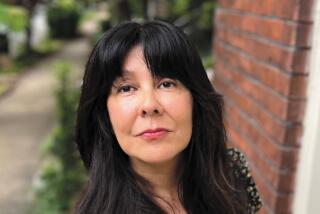“Incantations,” by Mayan Women; “This Lovely Life,” by Vicki Forman; and “Fugitive Visions,” by Jane Jeong Trenka
Incantations
Songs, Spells and Images
by Mayan Women
Edited by Ambar Past
Cinco Puntos Press: 230 pp., $26.95 paper
“These incantations were dreamed by Mayan women in the Highlands of Chiapas in southern Mexico,” writes Ambar Past in her introduction. “The Tzotzil authors of this anthology claim their spells and songs were given to them by their ancestors, the First Fathermothers, who keep the Great Book in which all words are written down.” Everything about this book is saturated; the ink is dark, the words look rich and thick on the pages. On the cover, the face of Kaxail, Mayan goddess of the wilderness, appears simple and complex, childlike and wise. An incantation for a newborn girl by Rosa Xulemho is characteristically simple and evocative: “When you grow up, / when you can speak, / you will work in the cornfield, / you will weave, / you will earn money / ‘to buy your salt.”
The baby is given the tools of women’s work: a spindle, carding combs, weaving sticks, a grinding stone and a tumpline for carrying firewood. Weaving, cooking, making love and dancing are the most common subjects. “The force of the word can cure or kill,” Past explains. The soul can be made to wander off from the body. There are portals to the Underworld. Each person has an animal companion, or “wayhel,” “a word grown from the root (way) of the verbs to sleep and to dream.” It’s a witchy book. Be careful.
This Lovely Life
A Memoir of Premature Motherhood
Vicki Forman
Mariner Books: 272 pp., $13.95 paper
“Let them go,” Vicki Forman begged her doctors when her twins were born at 23 weeks, 1 pound each. “I know what their lives will be like. I want you to let them go.” California law, according to her doctors, demanded resuscitation, that the babies be kept alive. Forman, who already had a 3-year-old daughter, watched one of the twins, Eleanor, die in four days. The other, Evan, was blind, nonverbal and dependent on a feeding tube; he lived for eight years. Almost everything in this deeply affecting memoir runs counter to common sense; the papers, the numbers, the forms, the bureaucracy, the decision-making process, the willful insistence on life. “Shouldn’t she be next to him?” Forman wonders when the twins are separated right after birth. “We try to keep twins on opposite sides of the room,” the nurse explains, “so as not to confuse their care.” It is a system run amok; but Forman soldiers on, becomes her son’s best advocate, finds love in the center of the insanity. “On the other side of blame,” she learns, “lies forgiveness and redemption.”
Fugitive Visions
An Adoptee’s Return to Korea
Jane Jeong Trenka
Graywolf Press: 192 pp., $16 paper
The title of this fiery memoir comes from Prokofiev’s “Visions Fugitives,” which he composed when he was 26. Its dissonance resonates with Jane Jeong Trenka, who was born in Korea, given up for adoption and grew up in Minnesota (her first book, “The Language of Blood,” is about her childhood). After five years of marriage, Trenka returned to Korea. “At thirty-six years old I am the mother of no one, the ex-wife of a New Yorker, an ex-Korean possessing Korean language skills inferior to those of my nephew, a two-year-old Korean boy being raised by Korean parents. I am functionally illiterate, deaf, and mute in what should have been my native language in my native country.” Trenka is, she writes, one of the 167,000 to 200,000 babies sent from Korea to the West, the “theft culture.” She writes of the “bewitching, bedeviling seduction of whiteness.” She wonders if her husband might have been happier with “a nice white lady, preferably one who wants to spend all her time at Home Depot choosing paint.” Her anger is the spine of the book, a child “exiled for no crime except my birth to a battered wife.” I admire the ferocity of this book. “The orphan,” Trenka writes, “has an insatiable hunger.”
More to Read
The biggest entertainment stories
Get our big stories about Hollywood, film, television, music, arts, culture and more right in your inbox as soon as they publish.
You may occasionally receive promotional content from the Los Angeles Times.






